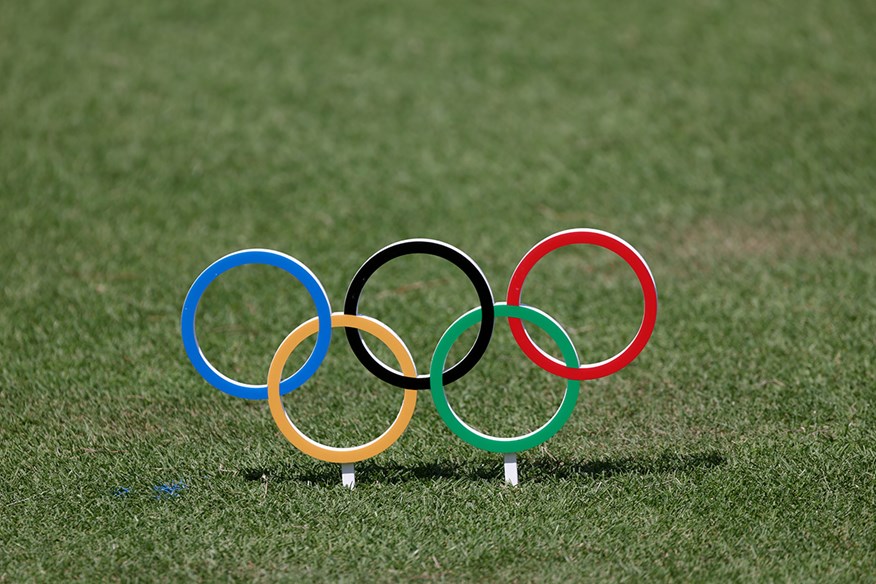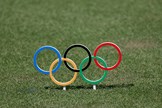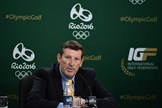Olympic Games 2024: Golf’s golden opportunity to engage a new fanbase in Paris
Last updated:
Ahead of Paris 2024, I spoke with International Golf Federation Executive Director – Antony Scanlon, to discuss golf’s growing traction within the Olympic Games program, opportunities for the sport, its stars, and what we can expect in the French capital.
Le Golf National in Guyancourt, Paris will host the men’s (August 01) and women’s (August 07) golf tournament at the 2024 Olympic Games where fields of 60 will compete over 72 holes for a rare piece of golfing history. It marks just the fifth appearance of golf at the Summer Olympics after editions in 1900, 1904, and then a mere 112 years later for the 2016 Rio and 2020 Tokyo cycles.
While many of the same stars are set to see it up at the Le Golf National, host venue to the 2018 Ryder Cup, a wholly different set of eyes will be watching them compared to your average PGA Tour event. Therefore, A unique opportunity presents itself, not just for the players to win a “non-Major” Major and etch their name in Olympic folklore, but for the sport to show the world what it has to offer and attract a new, more diverse fanbase.
Although there’s not a dollar to be won, there’s a prize of greater importance riding on a successful showing in Paris, and the man responsible for its delivery is fully aware and excited to be part of the 31-sport roster. Justin Rose, Inbee Park, Xander Schauffele, Nelly Korda…Olympic Champions. Only two men and two women in the last nine years. “There’s a uniqueness of playing for something that others don’t have,” says Scanlon.
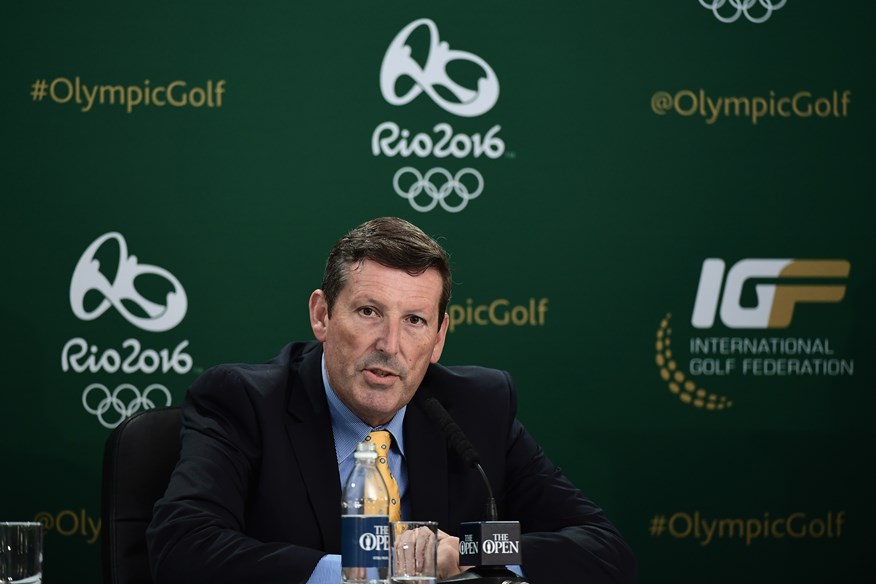
Here’s my wide-ranging interview on the opportunity that presents as golf prepares for the Games of the XXXIII Olympiad.
What opportunity do the Olympic Games present for golf?
Being part of the Olympic Games and being brought into the Olympic movement brings a lot more recognition amongst many governments with national golf federations automatically becoming members of the International Olympic Committee. Without that, they’re not open to a lot of government funding and resources to help grow the game. That was one of the key tenets as to why we wanted to be part of the Olympic program.
Then the side product we get is exposure to a vastly different audience with 60 to 70% of Olympic golf viewers being non-traditional. So it’s that uniqueness of the audience, and the other facet is its demographic. It’s about 55% male 45% female, and a lot younger than those normally watching the telecast on Sunday. It’s broadening our church, it’s allowing us to attract a newer fanbase and then ultimately if we get a little stickiness from them, it leads to the opportunity for our membership to come and try this game out.
What can the Olympic Games do for players?
The raised profile athletes receive from a medal or even just participating helps increase their social media presence and reach. If I go back to Tokyo, gold medallist Nelly Korda became the first female golfer to be nominated athlete of the year in the US, and that came from exposure through the Olympic Games. She’s had fantastic success this year but hasn’t had the reach that she got from the Games, so we’re really hoping to come to Paris and create new stars.
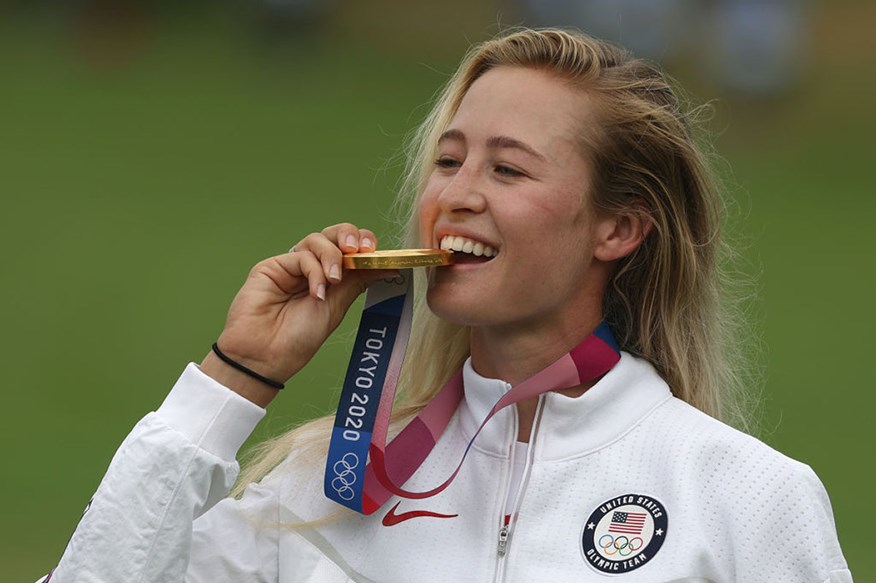
Is the Olympic Games an opportunity to show golf is open to all?
It’s up to the membership to take that opportunity you know. I can’t put a golf club in somebody’s hand, it’s up to the membership during this three to four-week Halo and beyond to capitalize on that and that’s the message we’re putting out to them.
How might future formats of the Olympic golf event evolve?
We went to the IOC at the beginning of the year and we’re working with the organizing committee for Los Angeles 2028 on a proposal to have a mixed-team event in between the men’s and women’s event. So far we’ve done a pretty good job with the 72-hole strokeplay event and the players themselves have said ‘listen if we’re going to have a gold medallist in the individual competition, it’s got to be 72-hole strokeplay.’
Every Olympic Games we look at formats to see what’s the best way to showcase the sport. We think a mixed-team format is a fantastic opportunity and we’ve got great player support from that, we just need the IOC to agree. That decision will be made at the beginning of 2025 when they sign off on the different sports that will be delivered in LA, but yeah good signs. That tribalism from teams playing against each other plus the camaraderie and friendships that develop from it is why we’re big supporters of a mixed-team event.
Can you give us an insight into what to expect from Le Golf National?
The first thing we are doing, as we did in Tokyo and in Rio, is we’re getting the course at its highest agronomical peak. So we will have Le Golf National at its best ever in terms of presentation of greens, fairways, and rough, etc. It’s what the players expect coming to a major championship event and that’s their expectation, to have the best platform to show their skills. We then work backwards to say ‘these people are the best players in the world, so let’s show how they are the best.’
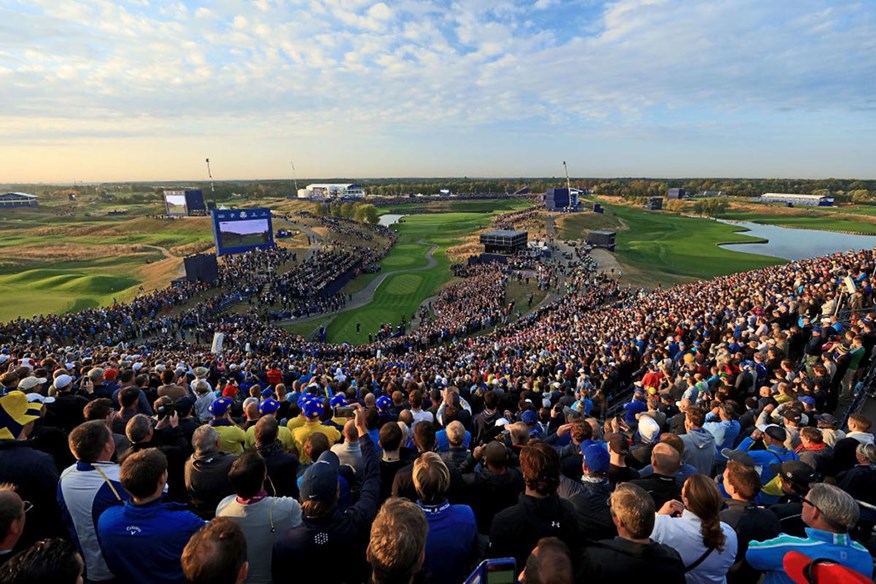
It’s not going to be won on six-under like Pinehurst then?
[Laughing] That’s fine for the US Open but I doubt it given the skills of the people we will have there. We set the course up for birdies so we can showcase their games, and as I said we’ve got a different audience. The team have been able to set both the men’s and the women’s tees up to compare equally. The ladies might not hit as long, but are certainly just as high quality. That’s our philosophy, let’s show off the game and show how skilful the players are rather than try and trip them up.
Are you expecting many withdrawals as the Games get closer?
We’ve had a couple, but it’s people that were never going to qualify anyway. We’ve seen a great acceptance. It’s been a journey, obviously, it was the unknown back in Rio, a city that had its own challenges in terms of security and Zika and other things in a competition that people knew nothing about.
How is an Olympic Games different for a tour pro?
Well, for starters, most of them are living in a dormitory, eating in the cafeteria, and traveling on a bus. So it’s a very different experience for them. It’s a unique and humbling experience being around the other greatest athletes in the world from different sports and realizing how fortunate they are to be making very good livings out of golf compared to others who may have other jobs to fit around their own training.
They also love the uniqueness of being part of a national team, and because of their profile, taking a prominent role within that team. Then once they finish their round, they’re off to support their teammates at other events, and in turn they attract the other athletes to come and watch them. These unique experiences are now something players are seeking out if they haven’t been part of it before, and those that have, want to be back there.
Is an Olympic gold medal a strong motivator for professional golfers?
For the last four years, every time I see Justin Rose play, I hear him mentioned as Olympic Champion. You win a major, that’s only mentioned for a year, an Olympic Games win lasts four years at least, that’s pretty cool. Again, there’s that uniqueness of playing for something that others don’t have. Plus, you even get a medal for coming second or third.
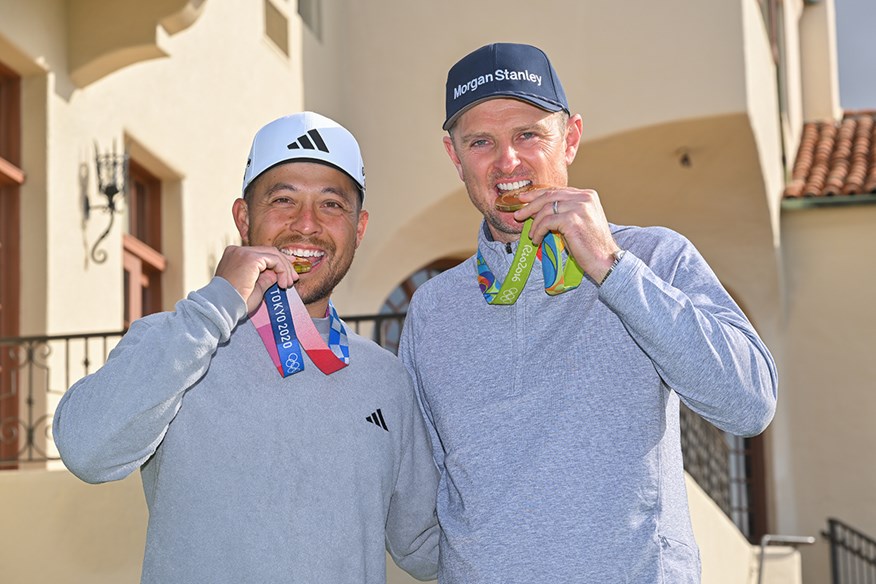
Has prize money for competitors ever been considered at the Olympic Games?
I think the whole model would have to change if there’s an expectation from athletes for payment. Some national governing bodies do provide payment to medallists, but it’s not a large sum of money, it’s more a token of their achievement. If we were to equate a gold medal to a major I’m not sure I could find 15 million for six medals.
It’s something all the international federations have to consider and think about and recognize because of compensation for the athlete’s image and likeness throughout the Games, but I think it needs to be a very measured and well-thought-out discussion rather than a knee-jerk one.
Does golf get enough airtime at the Olympic Games?
We seem to get very good coverage in the US and the UK. If we go back to when Justin won his gold medal, that set a free-to-air TV record for golf with 10.2 million people watching. I think our numbers are very good, we have a quarter of a billion people watching golf during the Olympic Games and the more coverage we can get on free-to-air and streaming platforms the better.
We’ve got 39 countries that will host it online or broadcast it free-to-air because their athletes are participating. So I think for a newer sport under the program we’re doing pretty well and if we keep creating heroes that are recognized throughout the sport and beyond then we’ll get more and more viewers, and we’ve got potential of that with Scottie and Nelly.
How did you land on the current Olympic Games qualification pathway?
It’s a balancing act on the qualification system because firstly we’re limited by the number of athletes we can have participating by the IOC. We have 60 men and 60 women, a lot fewer than what you would have in a major championship. As 10,500 athletes is the limit, trying to fit 31 sports into those spaces becomes a bit of a jigsaw puzzle, especially with team events. So that’s why we are limited to that number of athletes.
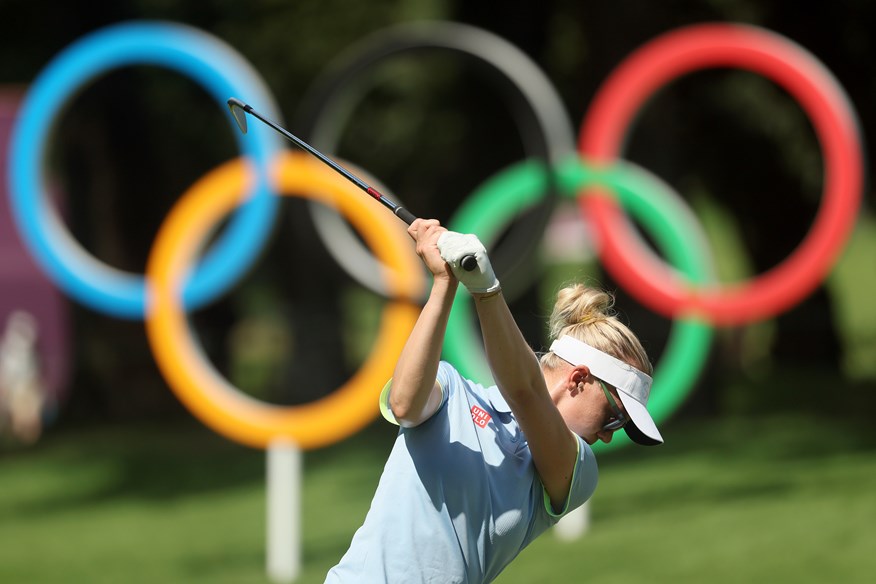
Then you’ve got to balance the strength of the field, ensuring you have your top athletes there but also working within the rules of the Olympic movement in terms of a maximum number of athletes that can participate in any event. Traditionally it’s three, but we were able to get an exemption to four which is similar to tennis. So how we balance that is by saying if a country has athletes that are in the top 15 in the world, a maximum four per country, and then beyond that it’s a maximum of two. Then on top of that you also want to maximise the number of countries, so I think we’ve got it right.
Is there a plan to provide an Olympic Games qualification pathway for LIV players in LA?
The big question that’s being mentioned right now is the issue we have with the recognition of LIV Golf performances and our approach of using the OWGRs. Two years ago we had to come up with this ranking system which the IOC agreed to, so we are locked into it. We have two more years before we have to finalize the next criteria so hopefully by that time we’ve resolved the LIV issue and we’ve got a united and incredibly strong product.
SUBSCRIBE TO TODAY’S GOLFER: Print and Digital access, discounts and rewards!
